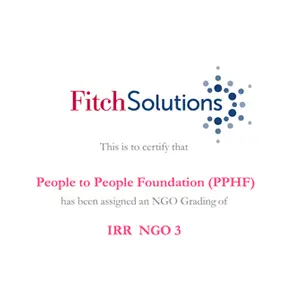
Non-Communicable Diseases
Non-communicable diseases (NCDs) constitute a major public health challenge, impacting the socio-economic development of India. Research demonstrates that the burden of NCDs can be greatly reduced if cost-effective, preventative, and curative interventions and actions are implemented. The growth of NCDs impact not just the urban economically well-off population, but also the underprivileged.
"We use a continuum of care approach to prevent and better manage NCDs like obesity, diabetes, hypertension, cancers, cardiovascular."
PPHF believes that no one should die prematurely from non-communicable diseases. PPHF works meticulously to achieve the country’s public health goals and address specific public health challenges related to NCDs, Women, Adolescent and Child Health, Nutrition, Infectious diseases, and Environmental Health. We focus on providing technical support on quality public health delivery, capacity strengthening, and health technology; generating new knowledge through research and demonstration for better programming and scaling up. We are working in collaboration with stakeholders, leveraging partnerships, and influencing policies and practices.
All our programs integrate innovatively, evidence-based interventions in three key areas
Public & Private Linkages - Advocating Change:
PPHF’s approach is to develop more skilled workers globally in collaboration with the public and private sectors. We support private and public players in addressing the shortage of healthcare workers needed to combat NCDs by expanding the skilled healthcare cadres at community and facility levels through our array of capacity-building initiatives. With a focus on creating a strong coordination mechanism with improved synergy and performance across various government ministries and programs, we form alliances within the health sector and with other key sectors to impact NCD outcomes.
Health System Strengthening:
Following a life-course approach in the prevention and control of NCDs, we work with the health system to adopt a life-course approach. Implementing innovative models to promote change, our programs aim at decreasing delays in diagnosis and treatment through the development and implementation of high-quality standardized NCD training for health functionaries, strengthening the referral system, standardizing, and improving quality of care, and addressing challenges to access. We work towards health systems strengthening for the early detection and management of NCDs and their risk factors.
Community Mobilization for Positive Impact:
We engage communities as partners in helping patients with effective disease management. Our programs aim to promote the development of population-wide evidence-based interventions to increase awareness about risk factors, early diagnosis, and management of NCDs through community mobilization initiatives. Working with local partners, we facilitate peer support networks and community prevention activities. Patients come together to facilitate discussions on NCDs and support each other to take care of their health.
Impacting Outcomes
PPHF’s approach to M&E is participatory, evidence-based, and results-orientated. With an integrated program design and quarterly reporting system from planning to impact phases, progress is tracked to successfully deliver the integrated Continuum of Care approach. To achieve our objectives of maximizing advocacy and program impacts for scaling up, we employ a range of strategies for collective and collaborative actions at the national and state level. Our model has proved to be a scalable prevention-to-care intervention. PPHF’s strength in Public Private Partnerships has helped generate a greater impact, working hand in hand with both public and private players with the mission of reducing the burden of premature mortality and morbidity of NCDs in India.
PPHF Approach to Non-Communicable Diseases (NCDs) Program Impact
Strategies
- Enhance government system and capacity for quality delivery of NCD services.
- Promote communications to increase demand and access to NCD services
- Engage in strategic partnerships with public and private sectors.
- Generate evidence for better program impact on NCDs.
- Drive advocacy and share learnings for scaling up
Pathway
- Train healthcare providers on NCD prevention and control
- Population-based screening and community awareness
- Increase access to affordable and quality medication
- Track progress through monitoring and impact assessment
- Test new approaches, tools, technologies, and solutions
- Leverage resources through public and private sector partnerships
- Promote the use of evidence for better planning and management of NCD program
Outcomes
- Improved policies, programs, and systems to scale- up high- impact NCD interventions
- Improved access to essential NCD services
- Improved skills of healthcare providers on NCDs
Impact
Reduction in the disease burden and premature mortality related to NCDs





